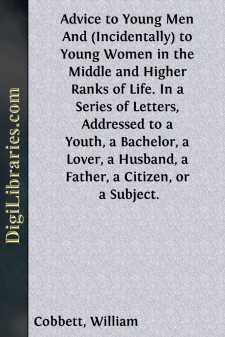Categories
- Antiques & Collectibles 13
- Architecture 36
- Art 48
- Bibles 22
- Biography & Autobiography 813
- Body, Mind & Spirit 142
- Business & Economics 28
- Children's Books 14
- Children's Fiction 11
- Computers 4
- Cooking 94
- Crafts & Hobbies 4
- Drama 346
- Education 46
- Family & Relationships 57
- Fiction 11829
- Games 19
- Gardening 17
- Health & Fitness 34
- History 1377
- House & Home 1
- Humor 147
- Juvenile Fiction 1873
- Juvenile Nonfiction 202
- Language Arts & Disciplines 88
- Law 16
- Literary Collections 686
- Literary Criticism 179
- Mathematics 13
- Medical 41
- Music 40
- Nature 179
- Non-Classifiable 1768
- Performing Arts 7
- Periodicals 1453
- Philosophy 64
- Photography 2
- Poetry 896
- Political Science 203
- Psychology 42
- Reference 154
- Religion 513
- Science 126
- Self-Help 84
- Social Science 81
- Sports & Recreation 34
- Study Aids 3
- Technology & Engineering 59
- Transportation 23
- Travel 463
- True Crime 29
Cottage Economy To Which Is Added The Poor Man's Friend
by: William Cobbett
Description:
Excerpt
INTRODUCTION.
To the Labouring Classes of this Kingdom.
1. Throughout this little work, I shall number the Paragraphs, in order to be able, at some stages of the work, to refer, with the more facility, to parts that have gone before. The last Number will contain an Index, by the means of which the several matters may be turned to without loss of time; for, when economy is the subject, time is a thing which ought by no means to be overlooked.
2. The word Economy, like a great many others, has, in its application, been very much abused. It is generally used as if it meant parsimony, stinginess, or niggardliness; and, at best, merely the refraining from expending money. Hence misers and close-fisted men disguise their propensity and conduct under the name of economy; whereas the most liberal disposition, a disposition precisely the contrary of that of the miser, is perfectly consistent with economy.
3. Economy means management, and nothing more; and it is generally applied to the affairs of a house and family, which affairs are an object of the greatest importance, whether as relating to individuals or to a nation. A nation is made powerful and to be honoured in the world, not so much by the number of its people as by the ability and character of that people; and the ability and character of a people depend, in a great measure, upon the economy of the several families, which, all taken together, make up the nation. There never yet was, and never will be, a nation permanently great, consisting, for the greater part, of wretched and miserable families.
4. In every view of the matter, therefore, it is desirable; that the families of which a nation consists should be happily off: and as this depends, in a great degree, upon the management of their concerns, the present work is intended to convey, to the families of the labouring classes in particular, such information as I think may be useful with regard to that management.
5. I lay it down as a maxim, that for a family to be happy, they must be well supplied with food and raiment. It is a sorry effort that people make to persuade others, or to persuade themselves, that they can be happy in a state of want of the necessaries of life. The doctrines which fanaticism preaches, and which teach men to be content with poverty, have a very pernicious tendency, and are calculated to favour tyrants by giving them passive slaves. To live well, to enjoy all things that make life pleasant, is the right of every man who constantly uses his strength judiciously and lawfully. It is to blaspheme God to suppose, that he created man to be miserable, to hunger, thirst, and perish with cold, in the midst of that abundance which is the fruit of their own labour. Instead, therefore, of applauding “happy poverty,” which applause is so much the fashion of the present day, I despise the man that is poor and contented; for, such content is a certain proof of a base disposition, a disposition which is the enemy of all industry, all exertion, all love of independence....




